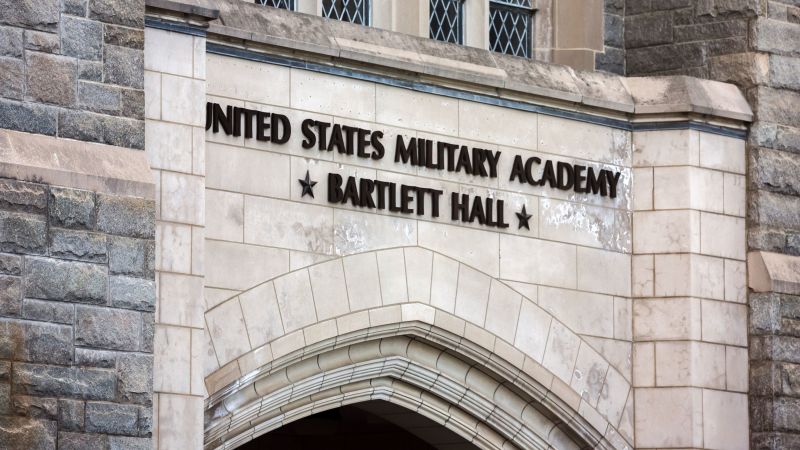Pentagon Orders Military Academies to Remove Books on 'Divisive Concepts'

CNN — In a recent directive that has generated significant controversy, the Pentagon has mandated all military academies to identify and eliminate books from their libraries that cover topics such as race, gender ideology, and other issues deemed 'divisive concepts.' This directive is now considered to be inconsistent with the core mission of the Department of Defense, as outlined in a memo obtained by CNN.
The memo, dated Friday, bears the signature of the acting deputy undersecretary of defense for personnel and readiness. It also announces the establishment of a temporary Academic Libraries Committee. This committee will comprise knowledgeable leaders, educators, and library professionals from across the Defense Department, tasked specifically with identifying and 'sequestering' books that fall under the aforementioned categories for further review.
According to the memo, military academies must identify and set aside these books for review by May 21. To facilitate this process, the committee has developed a comprehensive list of search terms aimed at helping military leaders pinpoint books that may require removal. These terms include phrases such as 'Affirmative action,' 'anti-racism,' 'allyship,' 'diversity in the workplace,' 'gender transition,' 'white privilege,' and 'critical race theory.'
The establishment of this special committee marks a significant intensification of the Defense Department’s efforts to eradicate content related to diversity, equity, and inclusion (DEI) from military academies. This move has raised eyebrows and stirred debates about academic freedom and the role of education in military training.
In a separate memo released on the same day, Defense Secretary Pete Hegseth clarified that there would be 'no consideration of race, ethnicity, or sex' in admissions to U.S. military academies. Instead, admissions will focus solely on 'merit.' Starting with the 2026 admissions cycle, the memo instructs service academies to rank candidates based on merit-based scores and to accept the highest-ranking candidates within each nomination category.
Interestingly, the memo specifies that merit-based scores may also take into account unique athletic talents or experiences such as prior military service or performance at a Military Service Academy preparatory school. However, it remains unclear how this directive will influence the ability of U.S. senators to recommend candidates for admission to the military academies.
The Naval Academy has already made significant strides in this direction by removing nearly 400 books from its main library. This action is an effort to comply with an executive order issued by former President Donald Trump in January, which mandated the removal of all content related to 'diversity, equity, and inclusion' from K-12 schools. Defense Secretary Hegseth later indicated that this order also applied to military academies.
Additionally, the Naval Academy recently canceled a lecture by author Ryan Holiday, who had been scheduled to speak to students. The cancellation occurred after Holiday refused to remove slides from his planned presentation that criticized the academy's decision to eliminate certain books, as reported by CNN.
In a related reaction, Graham Parsons, a tenured philosophy professor at West Point, announced his resignation in an op-ed for the New York Times. He cited the school's sudden elimination of courses, modification of syllabuses, and censorship of arguments to align with the ideological preferences of the Trump administration. Parsons lamented that West Point was interpreting Hegseth’s order broadly, which he believes represents a sweeping attack on the school’s curriculum and the research of faculty members.
In response to Parsons’ op-ed, Hegseth took to social media platform X, stating, 'You will not be missed, Professor Parsons.' Furthermore, the Department of Defense's rapid response account branded Parsons as 'woke', highlighting the growing tensions surrounding this policy.
The impact of the anti-DEI policy is not limited to the military academies. Students and parents have reported that this directive is influencing classroom experiences at Defense Department schools worldwide. Classes such as AP Psychology, along with various student clubs and books, have been banned. The American Civil Liberties Union (ACLU) has taken legal action against the Department of Defense over this policy.
Furthermore, a plethora of articles discussing critical historical events and social issues—such as the Holocaust, the September 11 attacks, cancer awareness, sexual assault, and suicide prevention—have either been removed or flagged for removal from Pentagon websites. This action reflects the department's urgency to comply with Hegseth’s broad directive.
The memo establishing the libraries committee concluded by stating that the review process for the removal of books would be 'deliberate' and conducted by 'experts in the fields of education and the department’s mission.' This assurance aims to temper concerns regarding the implications of the book removals and their potential effects on educational integrity within military training.


















